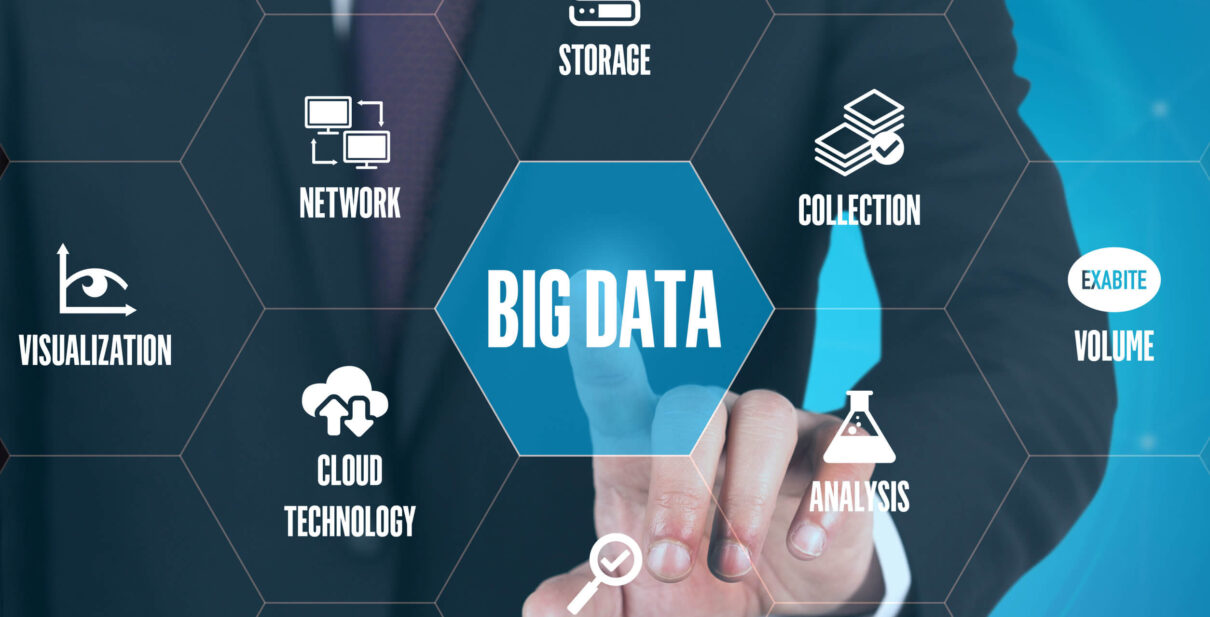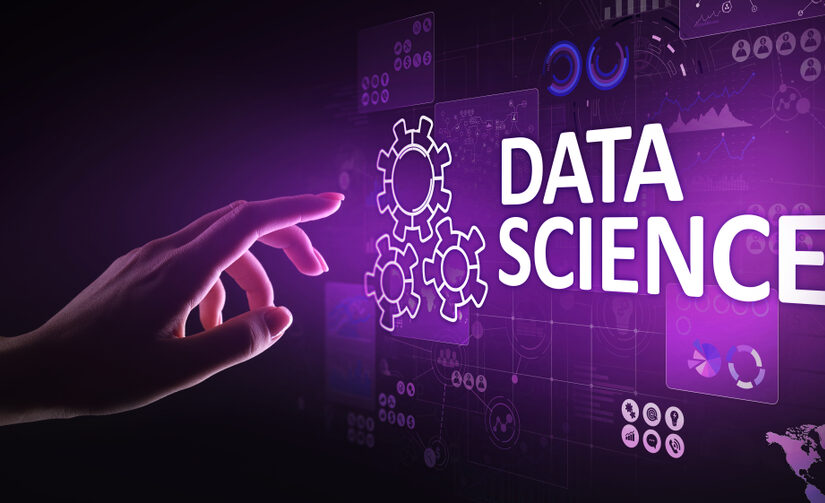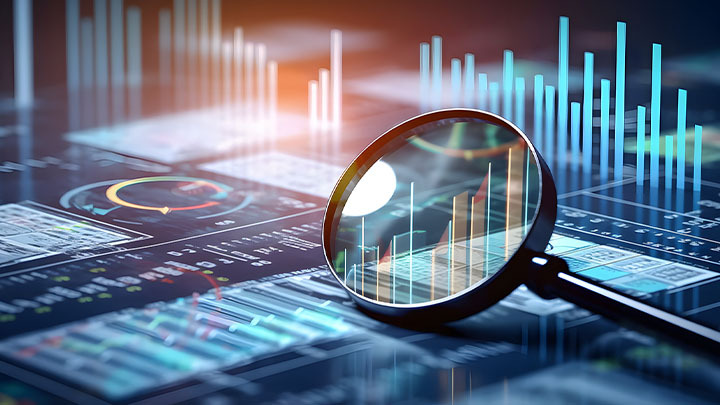The Vital Skillset for Data Scientists in 2023
Absolutely, data science is a multifaceted field encompassing skills like data analytics, artificial intelligence, machine learning, and more. The demand for these skills continues to surge, offering substantial income potential and abundant career prospects. However, mastering these skills requires a rapid acquisition of vast information due to the field’s steep learning curve.
For data scientists, it’s crucial to possess not just technical prowess in areas like data mining and statistical calculations, but also strong interpersonal skills and effective communication abilities. Mastery of various programming languages further augments their toolkit.
Moreover, understanding data science involves delving into specialized courses, such as those available in India, offering comprehensive insights into this dynamic field.
A data scientist functions as an analyst leveraging technology and social science acumen to discern patterns and effectively manage data. Their role involves integrating industry-specific knowledge, contextual understanding, and a critical eye toward established assumptions to devise solutions for complex business challenges.
Here’s an enhanced and detailed breakdown of the top skills essential for data scientists in 2023:
- Linear Algebra: Mastery in Linear Algebra is crucial for data science and machine learning practitioners. Understanding matrices is pivotal, as most machine learning models can be represented in matrix form. Datasets are often structured as matrices, making knowledge in Linear Algebra indispensable.
- Statistics: Statistics forms the backbone of complex machine learning algorithms in data science. It involves recognizing and interpreting data patterns, transforming them into actionable insights. Data scientists rely on statistics to gather, evaluate, analyze, and draw conclusions from data, employing quantifiable mathematical models on relevant variables.
- Microsoft Excel: Proficiency in Excel is valuable for organizing unstructured data into a coherent format, simplifying the extraction of insights. Excel facilitates the manipulation of complex data by allowing modification of fields and functions for computations. Its features, like filtering, sorting, merging, cleaning, pivot tables, charts, and VBA, aid in data manipulation.
- Decision Making: Effective decision-making is enhanced through understanding how decisions influence outcomes. Data scientists are increasingly integrating machine learning technologies with a comprehension of causal linkages to improve decision-making processes.
- Basics of Data Science: Fundamental knowledge in data science, machine learning, and artificial intelligence is indispensable for mastering the field. Differentiating between Deep Learning and Machine Learning is essential, alongside grasping the core concepts of data science.
These skills, combining mathematical proficiency, statistical knowledge, technological expertise, and a deep understanding of data manipulation and analysis, are crucial for success in the evolving landscape of data science in 2023.
Foundational Data Science Skills:
Data Visualization: Data visualization serves as a critical aspect of data science, enabling the representation of complex datasets through visual elements such as bar charts, histograms, and pie charts. This visual representation allows data scientists to effectively communicate their findings, trends, and insights to diverse audiences, fostering a clearer understanding of intricate data patterns and potential anomalies. Moreover, it plays a pivotal role in identifying weaknesses or outliers within the dataset, thereby guiding further analysis and decision-making processes.
Business Intelligence: In the realm of data science, possessing business intelligence is far beyond technical prowess. It encompasses the comprehension of how data functions as a strategic asset within business operations. This skill enables data scientists to appreciate the role of data in steering organizational initiatives, optimizing revenue generation, and steering overall business expansion. Understanding the symbiotic relationship between data insights and business outcomes is crucial, as it empowers professionals to harness data-driven strategies for operational efficiency and long-term growth.
Exploratory Data Analysis (EDA): Exploratory Data Analysis serves as the initial investigative phase in data science, employing a combination of visual tools and statistical summaries to delve into datasets. It aids in uncovering inherent patterns, correlations, and potential outliers within the data. By utilizing graphical representations and statistical techniques, EDA enables data scientists to explore data characteristics comprehensively, identify trends, and test hypotheses. This thorough examination of data allows for a deeper understanding of the underlying structure and relationships between variables, laying the groundwork for subsequent analysis and modeling.
Technical Data Science Skills:
1. Machine Learning
Machine learning, a pivotal subset within data science, involves the utilization of algorithms such as Random Forests, K-nearest Neighbors, Naive Bayes, and Regression Models. These algorithms form the backbone for data analysis, enabling the extraction of predictive insights and the identification of complex patterns within datasets.
2. Neural Networks
Neural networks, constructed with interconnected nodes imitating the functionality of human brain neurons, excel in tasks like data categorization, clustering, and pattern recognition. Their adaptive nature and continuous evolution allow them to uncover intricate relationships within data over time.
3. Hadoop
Apache Hadoop, an open-source framework, serves as a robust solution for storing and processing massive datasets, ranging from gigabytes to petabytes. By employing distributed computing across multiple machines, Hadoop enables parallel data processing, enhancing scalability and performance.
4. Cloud Computing
Platforms such as Google Cloud, AWS, and Azure are integral for data scientists, offering a suite of operational tools, diverse programming languages, and efficient database systems. These platforms facilitate the daily evaluation of vast quantities of data, enabling streamlined analysis and processing.
5. Packages and Software
Tools like OpenCV, Pandas, and NumPy serve as foundational elements within Python for data science tasks. OpenCV, specializing in real-time computer vision, typifies application-specific packages, showcasing distinct functionalities catering to specific data needs.
6. Deep Learning
An indispensable facet of data science, deep learning expedites the analysis of complex datasets by integrating statistical concepts and predictive modeling. Its efficiency significantly benefits data scientists managing extensive volumes of data.
7. Database Knowledge and Management
Knowledge management systems play a pivotal role in enhancing comprehension, collaboration, and process alignment in data management. They facilitate the organization of knowledge bases for users, clients, businesses, or teams.
8. Data Wrangling
Data wrangling involves the preparation of raw data for analysis, encompassing processes like data transformation and mapping. This crucial step enables data scientists to focus on analysis rather than data refinement.
9. Mathematics
A strong foundation in mathematical concepts is imperative in data science, acting as a cornerstone for machine learning algorithms, data analysis, and insight generation.
Data Science Skills:
10. Statistical Analysis and Computing
In-depth knowledge of statistics is paramount before constructing machine learning models. Proficiency in descriptive statistics, probability distributions, sample and population, and hypothesis testing is crucial for accurate modeling and analysis.
11. Big Data
The challenges posed by extensive datasets, often referred to as “Big Data,” necessitate specialized frameworks like Spark, Hadoop, and others for efficient management and analysis. These frameworks are indispensable due to traditional data processing techniques struggling with large, structured, or unstructured datasets, making them fundamental in modern data science practices.
Non-Technical Data Science Skills:
1. Data Governance & Security
Data governance involves the establishment of internal data standards and regulations to ensure proper data handling. It oversees the accessibility, usability, integrity, and security of data within corporate systems. Effective data governance ensures data reliability, consistency, and prevents inappropriate use.
2. Operations Management using MLOps
MLOps is a set of techniques that facilitates collaboration between data scientists and operations specialists. Implementing MLOps enables the automation of Machine Learning (ML) and Deep Learning (DL) model deployment in large-scale production systems. This streamlines management processes while enhancing quality and efficiency.
3. Communication
Exceptional communication skills are imperative in any data science role. Data scientists need to articulate their findings and recommendations to non-technical stakeholders, such as senior management, other business divisions, or customers. Communication stands as a fundamental skill due to the diverse working environment in data science.
4. Team Player
Collaboration is key for data scientists who utilize statistical techniques, machine learning algorithms, and other tools to analyze data and generate predictive models. Overcoming the challenges of real-world data science often requires teamwork. Academic programs should design assignments promoting student collaboration to enhance these essential skills.
5. Business Acumen
A robust understanding of business operations aids data scientists in tailoring solutions to address customer needs and challenges. Additionally, it enables data scientists and analytics experts to comprehend decision-making processes across all organizational levels.
6. Critical Thinking
Critical thinking involves the objective and rational analysis, inspection, and interpretation of data to derive practical insights. It challenges knowledge to enhance judgments and understanding, crucial in data science for making well-grounded decisions.
7. Intellectual Curiosity
Beyond the perceived mathematical and scientific nature of data analysis, successful analysts leverage curiosity by consistently questioning, expanding knowledge, and challenging assumptions. Intellectual curiosity fuels innovation and breakthroughs in data science.
8. Great Data Intuition
Practical data science necessitates a blend of expertise and intuition. Academic learning of machine learning algorithms differs significantly from real-world application. Thus, possessing a firm grasp of industry-specific knowledge and relevant fields is vital for success in practical data science applications.
Programming Skills for Data Science:
1. Python
Python stands as one of the most sought-after programming languages in the tech industry. Its versatility and ease of learning make it ubiquitous across various applications, especially in big data scenarios. It’s a pivotal language for creating machine learning models, data manipulation, and working with Directed Acyclic Graph (DAG) files, offering data scientists a powerful analytical tool with its straightforward syntax.
2. Flask
Flask, a Python-based web framework, facilitates the rapid development of web applications, handling both frontend and backend configurations. Its design offers developers extensive control over data access. Built on Werkzeug’s (WSGI) toolbox and the Jinja templating engine, Flask provides flexibility in creating web applications.
3. Data Warehousing and SQL
Structured Query Language (SQL) is essential for data scientists working with databases. Proficiency in SQL enables the establishment of data pipelines, data manipulation, and efficient data extraction from databases. It significantly influences the early stages of data processing and modeling, laying the foundation for analysis.
4. Apache Spark
Apache Spark serves as an open-source distributed processing engine specifically designed for handling big data workloads. Leveraging in-memory caching and optimized query execution, Spark ensures swift query results irrespective of data volume. Its efficiency in processing large datasets makes it a go-to tool for quick analytic queries.
Business or Domain Skills:
1. Time-series Modeling
Proficiency in time-series modeling is crucial for data scientists to simulate various scenarios and predict outcomes. Predictive analytics, a key aspect of data science, identifies patterns within datasets to forecast future events, behaviors, or outcomes. The ability to predict future trends based on historical data holds significant value across various industries.
2. Natural Language Processing (NLP)
Natural Language Processing (NLP) involves programming systems to analyze and process large volumes of natural language data. As text remains a prevalent data format, a solid grasp of NLP is essential for data scientists to effectively handle textual data and extract valuable insights.
Pathway to Becoming a Data Scientist in 2023:
Data scientists often possess master’s or even Ph.D. degrees, although exceptions exist. A degree in Computer Science, Physical Sciences, Natural Sciences, Statistics, or Social Sciences suffices to venture into this field. Mathematics and Statistics degrees augment the understanding of core concepts.
Degrees are just the beginning; continuous learning is essential. Engaging in online courses, obtaining certifications in tools like Hadoop, Big Data, or R, and pursuing postgraduate degrees in Data Science, Mathematics, or related fields contribute to skill enhancement.
Data scientists play a critical role in extracting insights from vast datasets, aiding businesses in predicting future trends and mitigating potential risks through sophisticated models, demonstrating their significant impact on global enterprises.
ABCDE Skillset for Data Scientists:
1. A = Analytics
As a Data Scientist, expertise in analytics goes beyond merely studying data and selecting appropriate tools. It involves having prompt solutions for the array of questions that arise while strategizing solutions, whether with or without a defined business model. Your analytical skills should navigate complexities, ensuring efficient problem-solving and informed decision-making.
2. B = Business Acumen
Strong business acumen distinguishes exceptional Data Scientists. Demonstrating how your skills impact the organization’s competitiveness is crucial. It’s not just about undertaking and completing a project; it’s about comprehending, and effectively communicating how your models drive business outcomes, offering a competitive edge.
3. C = Coding
Proficiency in coding is essential for Data Scientists, enabling them to address technical challenges that might arise during projects. Having coding skills enhances versatility, empowering you to contribute more effectively to team efforts and tackle technical obstacles with confidence.
4. D = Domain
While perfection in every domain isn’t expected, having an understanding of various industry operations is beneficial. Continuous learning through reading and online resources can supplement your domain knowledge, enabling you to grasp diverse industrial landscapes.
5. E = Explain
The ability to articulate complex problems and solutions is crucial for a successful Data Scientist. Effective communication bridges the gap between technical complexities and stakeholders’ understanding. Clear and concise explanations ensure a shared understanding among stakeholders, driving effective decision-making.
Endnotes:
The rapid growth of technology has led to vast work prospects in the tech industry, especially in data management. Data Scientists with top skills are pivotal in leveraging extensive data pools to develop effective strategies and plans for businesses. These skills are instrumental in providing precise information tailored to organizational needs, crucial in a data-driven world.









